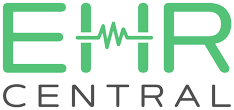Cloud-Based EHR: Why It’s the Future of Data Security
In an era where healthcare data breaches are on the rise, protecting patient information has become a top priority for every medical provider. Cloud-based Electronic Health Record (EHR) systems are rapidly becoming the industry standard,

not only for their convenience and scalability but also for their advanced security features. For organizations like mHospital, the cloud represents a safer, smarter, and more future-ready way to manage health data.
The Shift to Cloud EHRs in Modern Healthcare
Traditional on-premises EHRs rely heavily on local servers, manual updates, and in-house security protocols. These systems are not only costly to maintain but also vulnerable to cyber threats if not consistently updated.
Cloud-based EHRs change that model entirely. With continuous updates, encrypted data, and remote access capabilities, they provide a modern solution tailored for today’s rapidly evolving cybersecurity landscape.
Why Cloud-Based EHRs Are More Secure
- Advanced Encryption Protects Data at Every Stage
Cloud EHRs use end-to-end encryption for data in transit and at rest. Even if attackers intercept information, it remains unreadable without proper authorization.
- Automatic Security Updates
Cloud providers automatically roll out new security patches, reducing vulnerabilities. This eliminates the risk of outdated systems, a common cause of breaches in legacy EHR platforms.
- Multi-Layered Authentication
Features like:
- Multi-factor authentication (MFA)
- Role-based access control (RBAC)
- Single sign-on (SSO)ensure that only authorized users can access sensitive patient information.
- Built-In Disaster Recovery
Cloud systems offer automatic backups and geo-redundancy, meaning patient records are stored in multiple secure locations. Whether it’s a natural disaster or accidental data loss, recovery is quick and reliable.
- Compliance Made Easy
Cloud EHR vendors design systems aligned with:
- HIPAA
- GDPR
- HITRUST
- Local data protection standardsThis built-in compliance reduces the burden on healthcare organizations to manage regulations manually.
The Rising Threat of Healthcare Cyberattacks
Healthcare is now one of the most targeted industries for cybercrime. With ransomware, phishing, and insider threats growing each year, relying on outdated systems puts patient safety and organizational reputation at risk.
Cloud-based EHRs include continuous monitoring, AI-driven threat detection, and 24/7 security management, giving healthcare providers a significantly stronger defense.
How EHRCentral enhances your healthcare practice?
Better Security with Better Accessibility
What makes cloud solutions unique is that security does not come at the cost of usability.
Cloud EHRs offer:
- Secure remote access for providers
- Real-time patient data syncing
- Faster clinical workflows
- Coordination across departments and locations
This balance of security and efficiency supports better patient care while maintaining compliance.
Why Cloud EHR Is the Future
The healthcare sector is moving toward digital-first, interoperable, AI-enabled systems. Cloud infrastructure is the backbone that makes all this possible.
With:
- Enhanced security
- Lower IT costs
- Easy scalability
- Strong disaster recovery
- Seamless integration with telehealth and mobile apps
Cloud-based EHRs aren’t just an upgrade; they are the future.
Final Thoughts
For organizations like mHospital and software like EHR Central, adopting a cloud-based EHR system is a strategic move toward long-term data security, operational efficiency, and patient-centered care. As cyber threats continue to evolve, the cloud offers the strongest and most reliable foundation for protecting sensitive medical information.





